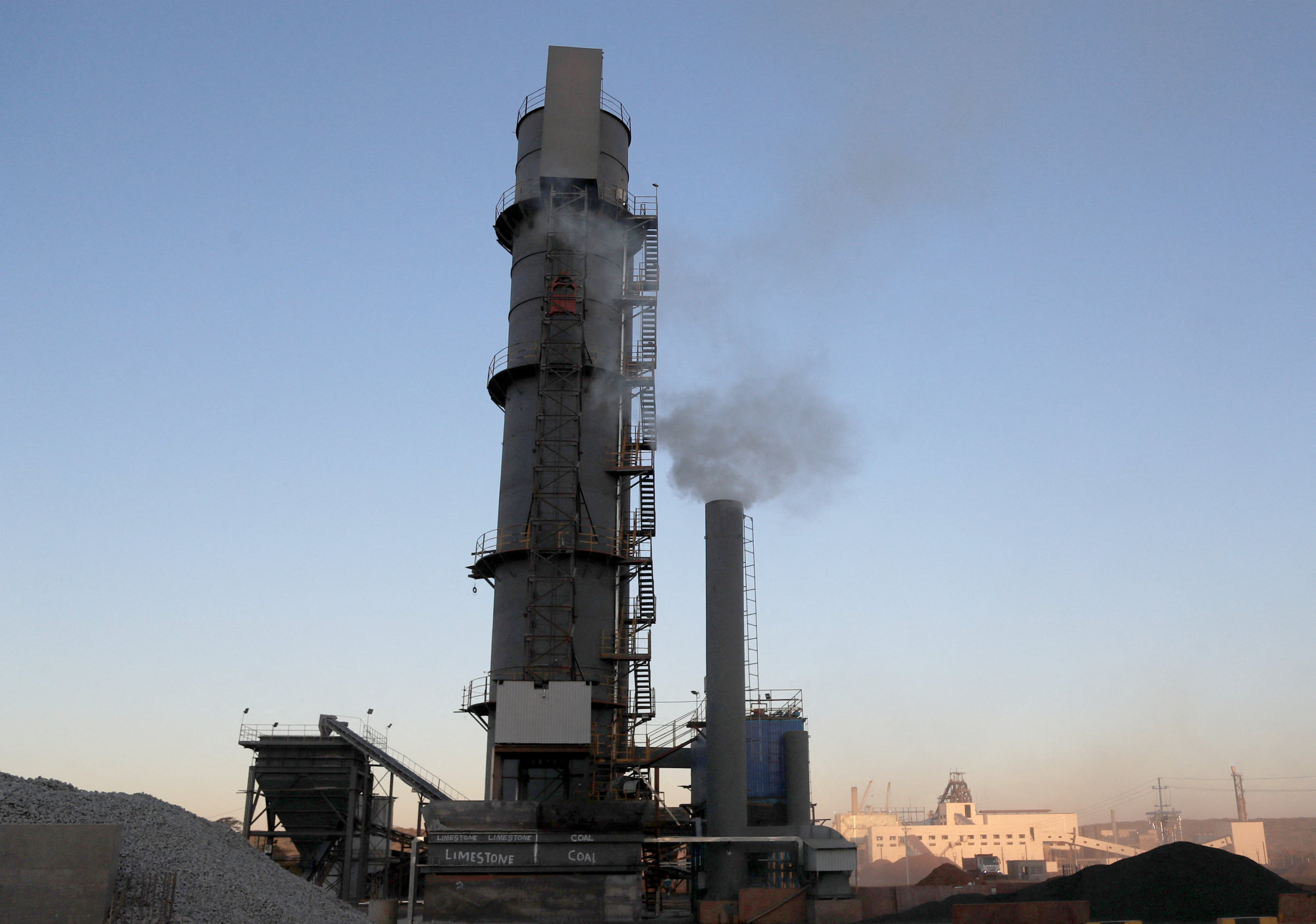News
Chinese-built steel plant in Zimbabwe fires up its furnace as it ‘builds the nation’
Tweet
“Today marks a monumental milestone as our cast iron machine produces its very first batch of pig iron,” Dinson Iron and Steel Company (Disco), the Zimbabwean subsidiary of Chinese steel giant Tsingshan Holding Group, said on June 13
The plant will initially produce 600,000 tonnes of steel a year at the peak of its first phase and production is expected to reach five million tonnes in the final phase of the plant expansion. It will have up to 3,000 workers during the first phase of production with the number expected to double in the second phase.
When running at full throttle, the processing plant around 200km (120 miles) south of the capital Harare is touted to become Africa’s biggest integrated steelworks. And it could not come soon enough.
The Chinese embassy hailed the start of operations at the new plant, posting on X, formerly Twitter, that “it marked a significant step for Zimbabwe’s industrialisation and modernisation”.

In future, the plant will make use of Zimbabwe’s abundant iron ore, chrome, coal, nickel and limestone to make iron and steel products that will help develop the country’s value chain. Raw materials will be mined and processed locally, government officials have said, with enough reserves to last 100 years.
Tsingshan, the world’s biggest stainless steel producer, also has other projects in Zimbabwe, including a ferrochrome smelting factory owned by subsidiary Afrochine Smelting in Selous, a village in Mashonaland West province, around 70km west of Harare.
Ferrochrome is an intermediate product used as feed material in the production of value-added materials such as stainless steel. Ferrochrome produced at Selous will be used to make steel at the Mvuma plant.
It’s pleasing that our iron ore will be fully explored and value-added locally. We would buy iron from South Africa and Kenya and now we will export to them.
When Zimbabwe President Emmerson Mnangagwa toured the construction site in March, he said there was a shift taking place as the nation moved from being an importer of steel to an exporter.
“This iron ore was always there lying idle; we did not know. We would wonder why certain rocks are heavy and we would even build our foundations for houses with iron ore. We are now using iron ore to help us build our nation.”
“Once we start production, we will be moving a lot of exports and in large quantities to different parts of the world,” the steel producer said.
Source: thezimbabwean.co
Tweet
Related News
- Stay Ahead in Nonferrous and Lightweight. Follow Diecasting & Nonferrous China 2026
- European Foundry Industry in Transition – New Opportunities Through the Defense Sector
- Global pig iron production fell by 4.4% y/y in October
- India sharply increased iron ore imports by more than 200% y/y in January-October
- EU plans to limit exports of aluminium scrap
- Calderys Group celebrates 160 years of innovation and industrial excellence
- Foundries in Transition: Why Humanoid Robots Are Now in Demand
- Iron ore exports from Brazil increased by 5.7% y/y in January-October
- See all News
